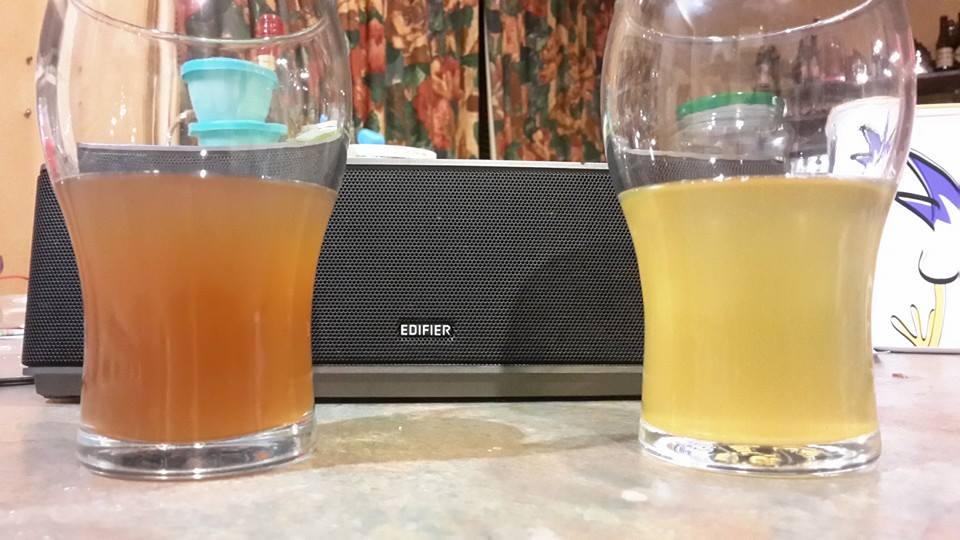Mohanz
Well-Known Member
Cheers guys, I will try my pils on Saturday (7days after setting it) and see how that turns out.



Just thought id provide an update on my kegging expeditions.
I have tried two ways to force carbonate now, the first was set and forget, and I must confirm @Iseneye was bang on. After 1 week it was half carbed, tried it again last night (2 weeks) and it was really good, just not quite perfect... but pretty much there.
The second was the 30psi for 48hrs. This produced a near perfectly carbed beer, I think 2-3days left on 10psi will finish it off nicely. Though i did notice this hasnt given it time to settle so there was a little bit of yeast and hop matter floating arounf in the first couple of pints.
Otherwise i would call it a success. Kegging is by far the greatest addition to homebrewing! cheers guys


Ok so now i know why i can never quite get my hop flavour and aroma big enough, I'm not using enough hops
.....but I see why people use hop extract on these big IPAs.
I might know someone local who has a fair amount of the stuff
Oh, you haven't used that small amount you had yet?

Nice. Just to avoid the "my pours are foamy" question - make sure you use 10' (3 metres) of beer line for each keg. Home brew shops normally supply 5'.
Has anyone got experience brewing with oats? Working on a porter recipe and it needs some extra body, keen to give oats a try.
My plan was to boil rolled oats from the supermarket for 30-45 mins and then add them to the mash.
Thoughts?
I have used them a few times in some stouts. Rolled outs should be pre- gilatanized and can go straight into the mash. But many people seem to pre cook them for whatever reason.
You might add them to the top of your grain bed to help avoid a stuck mash.
It has to do with rolled not being fully gelatinised by the sound of it but there doesn't seem to be a lot of agreement on the subject from what I was reading. Also gets confusing reading about flaked vs rolled vs quick not to mention are the terms used in the same way in the US and here.
Glad you cleared it up, cheers.
Yeah, there does seem to be a lot of confusion on the issue one way or the other. My homebrew shop originally told me to just throw them right in the mash, which is what I did without any issues. While I wouldn't hesitate to do it again that way, it doesn't sound like pre-cooking them would cause any harm.
Hey all, just heard about this home brew comp "Nautilus Craft Brew Championships 2015"
Not much detail yet but its Wellington Based and they have a facebook page: https://www.facebook.com/events/871345249580370/
Will keep an eye one it, hopefully its for homebrewers too.
Turn up for a light hearted night of enjoying home brewed craft beer from the local and brave as well as the usual BBQ and nibbles fare from the Nautilus Team
Junk settling out in the keg?
Yeah the keg is pretty clear and everything has settles out of it as far as I'm aware.
I did wonder that but I tried a cold bottle of the pilsner (carbed for 3 weeks then put in fridge), the warm bottle of the pilsner (out for 6+weeks at room temp) and the keg (2C in kegerator). the Cold bottle and Keg taste identical so there isn't an infection, it seems as though the temperature is the differentiation and perhaps its the conditioning that has cleaned it up. But not sure the same effect will work with the keg without the presence of additional sugar?
Enter your email address to join: